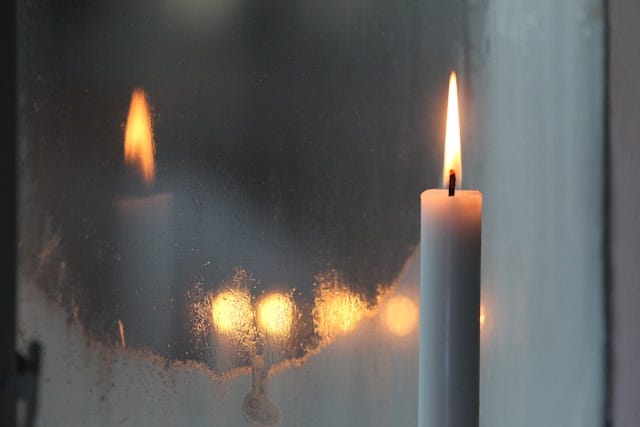Verses for the Waiting
"We celebrate the First Advent to whet our appetites for the Second. We long for the next coming." - Max Lucado
Dear friends,
Perhaps you, like me, feel that Advent has come at just the right time. For months now, I’ve been in a season of transition and soul searching, and as we’ve settled into December, I’ve found in the rituals and readings of Advent permission and encouragement to embrace the discomfort of the moment.
We humans are needy people, full of expectancy and longing that often feels too heavy to bear. Redemption, restoration, reconciliation: these we seek, but cannot effect on our own. I realize this afresh as I sort through the unfulfilled hopes and dreams of the past year and take stock of those desires that persist. Looking around for the light, I can sometimes see only want and need. Realistic assessment of where things stand can be temptation to despair, but observance of Advent reminds us that God is at work in the darkness.

Poetry, I’ve discovered, is a fitting means of exploring and navigating the deeply emotional experience of Advent. Here are a few poems that are helping me articulate that longing this season and, more importantly, are providing a glimpse of the coming fulfillment. It’s my hope that they may be of service to you as well.
John O’Donohue’s “A Blessing for One Who Is Exhausted”
O’Donohue—Irish poet, priest, and philosopher—poignantly captures the existential challenge of carrying on when all one’s resources are spent. The opening stanzas more than convey the burden of continual persistence in the good and right. They enable a vicarious experience of that weariness, the words themselves feeling weighty and oppressive. But relief comes through the spiritual practices promoted in the poem’s second half, as the poet shifts from description to imperative: “take,” “become,” “imitate,” “stay.” Only then, the speaker insists, can we discover “the joy that dwells far within slow time.”
Li-Young Lee’s “Have You Prayed?”
Lee’s poems have a distinctive meditative atmosphere. This one is no exception. Here as elsewhere, Lee blends past and present, concrete imagery and subjective impression to hint at the questions that often subconsciously shape our outlook on the world. As with these questions, the poem is meant more to be experienced than fully answered or understood.
Paul Laurence Dunbar’s “Sympathy”
Few poems express so fully the excruciating tension between human desire and limitations as does Dunbar’s classic text. We, like the speaker, identify with the caged bird’s emotions, struggles, and undiminished hope, painful as it is in the circumstances. Come for Dunbar’s lyricism, stay for the pathos.
Ellery Akers’ “The Word That Is a Prayer”
What I appreciate most about Akers’ poem is her depiction of our shared plight, how we look to one another for help, for answers. There’s an urgency to her imagery, a need that’s ubiquitous, underscored by the play on “please” and “pleas.” While Akers offers little comfort beyond solidarity with our fellow creatures, believers can recognize in her words how great the promise must be that will satisfy such deep hunger.
Gerard Manley Hopkins’ “Carrion Comfort”
Although Hopkins’ poem is the most challenging of those shared here, it’s also (arguably) the most profound. And one need not grasp everything Hopkins is doing here to still glean much. Additionally, fully understood or not, one can’t help but appreciate Hopkins’ richly evocative word choice. The speaker is wrestling, both with God and with despair. But through that anguish comes surrender and—ironically, though fittingly given Hopkins’ Christian convictions—the pathway to victory. (For more on Hopkins’ work, see this post: “An Experiment in Poetry: Gerard Manley Hopkins Marries Thought to Feeling.”)
Miscellany
If you are interested in a fuller collection of poems for the season (including Christmas and Epiphany), check out Malcolm Guite’s Waiting on the Word. I’ve written about Guite’s work elsewhere, and it never fails to edify and buoy my spirits.
Advent blessings all,
Marybeth



